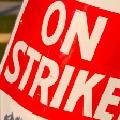
The planned seven days of strike action in two separate walkouts on 20-22 March and 27-30 March by British Airways (BA) cabin crew opens up a new chapter in their ongoing dispute with BA management.
The dispute was triggered when the management tore up cabin crew contracts last November. They reduced the number of crew on flights, changed the role of the lead member of the crew team and proposed to bring in new staff on inferior pay and conditions.
In a final throw of the dice to resolve the dispute, the crews’ union, Unite, offered a pay cut of 2.6% and agreed to new starters having inferior terms and conditions. However, the management refused to allow the new starters to work alongside existing crew. Instead, it wanted a ’new fleet’ with lower paid crew working on different planes and routes to existing cabin crew.
This was a bridge too far for cabin crew. Separating off the new crew would make it more difficult to recruit them into the union with a view to bringing their terms and conditions up to the level of their longer standing colleagues.
Instead, there could be a significant number of workers outside the union, weakening the negotiating position of cabin crew in any future dispute.
Also, there would be an immediate effect on pay. Basic pay for the bulk of cabin crew is very low. Some new starters are on as little as £14,000 a year. This can be topped up through allowances, with the most being paid for long distance destinations.However management could use the new lower wage crews, on lower allowances, for these longer routes.
While the Socialist Party does not support Unite’s offer of pay cuts in talks, management’s stubborn refusal to compromise on the new fleet shows that for it, cost saving is largely secondary to undermining one of the strongest organised sections of the BA workforce.
Unite assistant general secretary Len McCluskey voiced similar suspicions when he said that BA management’s "real agenda is destroying trade unionism among its employees."
Cabin crew are in a powerful industrial position. From the moment they strike, planes will stop flying and the company will haemorrhage money every minute.
Therefore, management’s strategy has been to delay industrial action for as long as possible through protracted negotiations, vague promises and before Christmas, attacking a democratic strike ballot through the courts.
A barrage of harassment and intimidation has been unleashed on the crew in the hope of undermining their will to strike. Management has also leased 25 fully-crewed planes and has been trying to train a scab crew for use during the strikes, including by calling for volunteers from other parts of the company.
Workers want to fight
Some aviation ’experts’ have stated that BA will be able to run a service with scab crews out of Gatwick and London City airports. However Heathrow’s terminal 5 is BA’s main base with 650 flights in and out a day.
Gatwick and City have nowhere near the capacity to allow enough flights to seriously undermine the strike, so the industrial action will hit the company hard.
There is huge anger amongst cabin crew and a strong desire to fight these attacks, as shown by the two overwhelming majorities for strike action in consecutive ballots and well-supported mass meetings.
Len McCluskey said that Unite will be calling on the whole of the labour movement to back the strike. That is a good start. A march to the BA headquarters, organised and led by cabin crew but calling on workers from Heathrow and the wider labour movement to participate, could be a focal point for rallying support.
This could build the momentum for targeted picket action on Gatwick and City airports if they are used by scab crew.

Be the first to comment